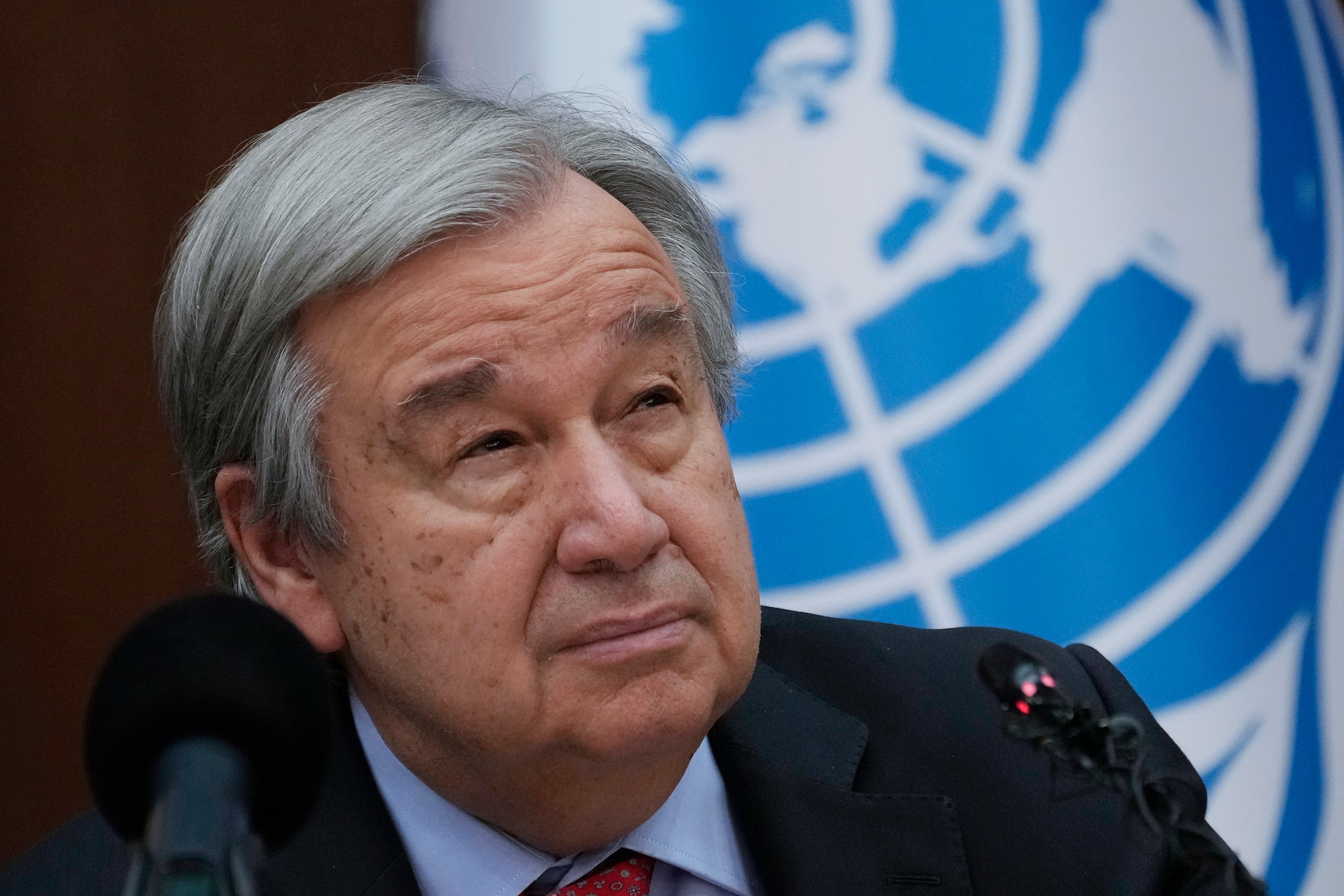UN chief urges all nations to stop targeting media and truth
The United Nations chief is warning on the eve of World Press Freedom Day that the media is under attack in every corner of the world where “truth is threatened by disinformation and hate speech.”

Your support helps us to tell the story
From reproductive rights to climate change to Big Tech, The Independent is on the ground when the story is developing. Whether it's investigating the financials of Elon Musk's pro-Trump PAC or producing our latest documentary, 'The A Word', which shines a light on the American women fighting for reproductive rights, we know how important it is to parse out the facts from the messaging.
At such a critical moment in US history, we need reporters on the ground. Your donation allows us to keep sending journalists to speak to both sides of the story.
The Independent is trusted by Americans across the entire political spectrum. And unlike many other quality news outlets, we choose not to lock Americans out of our reporting and analysis with paywalls. We believe quality journalism should be available to everyone, paid for by those who can afford it.
Your support makes all the difference.The United Nations chief warned on the eve of World Press Freedom Day that the media is under attack in every corner of the world and urged all nations to stop the targeting of truth and those who report it.
Secretary-General Antonio Guterres called the 50% increase in the killing of media workers in 2022 “unbelievable,” stressing that freedom of the press “is the foundation of democracy and justice” and it is under threat.
At least 67 media worked were killed in 2022. In addition, digital platforms and social media have made it easier for extremists to push false narratives and harass journalists.
“Truth is threatened by disinformation and hate speech seeking to blur the lines between fact and fiction, between science and conspiracy,” Guterres said.
Guterres said the collapse of the media industry, which has led to closures of local news outlets and consolidation of media “into the hands of the few” is threatening freedom of expression.
So are threatening new laws passed by governments worldwide, such as Russia's 2022 law that anyone publishing information about its military that Moscow deems to be false could face up to 15 years in prison.
Russia detained Wall Street Journal reporter Evan Gershkovich in late March under accusations of spying, which the Journal denies. The Biden administration has said Gershkovish is being wrongfully detained and has been working to secure his release.
Guterres strongly criticized the targeting of media workers both on and offline, saying they are routinely harassed, intimidated and detained. He added that nearly three-quarters of women journalists have experienced violence online and one-quarter have been threatened physically.
Guterres made the remarks in a video message for the U.N. commemoration of 30th anniversary of World Press Freedom Day, which the U.N. General Assembly first proclaimed in December 1993 and authorized to be held every May 3.
The secretary-general said the world must unite to stop threats, attacks and imprisonment of journalists for doing their jobs, and stop the lies and disinformation.
“As journalists stand up for truth, the world stands up with them,” he said.
Audrey Azoulay, director-general of the U.N. Educational, Scientific and Cultural Organization, which organized the commemoration, said the advent of the digital era has changed the entire information landscape.
While digital platforms have provided new ways for expression and information, she said, “they are also proving fertile ground for those who sow disinformation, hate speech and conspiracy theories.”
“We find ourselves at a new crossroads,” Azoulay said. “Our current path is leading us away from informed public debate … towards even more polarization,” she warned. “The other path is one we must imagine together, to ensure information can remain a public good, accessible to all.”
Azoulay said UNESCO in 2021 launched a model curriculum for teachers on media and information literacy “to develop critical mindsets to navigate these new flows.”
Given that the business models of digital platforms are based on the number of clicks, she said, they “all too often favor sensationalism over truth.”
Azoulay said that’s why UNESCO in February organized a global conference to address the issue, which was attended by over 4,000 interested parties. UNESCO is also working to publish a set of guidelines on the moderation and selection of online content later this year.